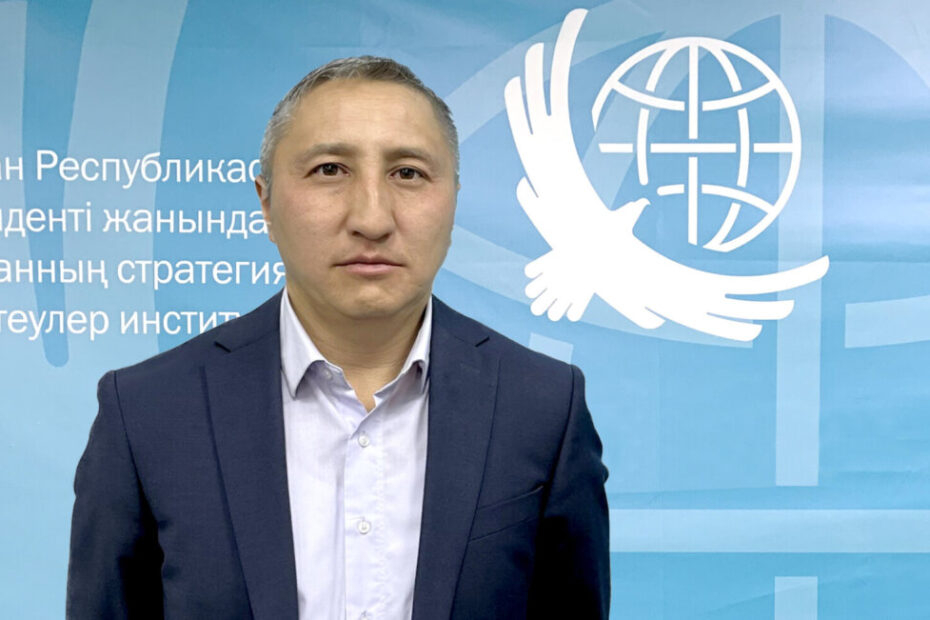ASTANA – The Astana International Forum (AIF) will address major issues, including water scarcity and the development of the Trans-Caspian International Transport Route (TITR), also known as the Middle Corridor, on June 8-9.

Mukhit Assanbayev
Water scarcity has been a growing challenge in recent years. The forum panel session Thinking Creatively about the Problem of Water Scarcity will explore innovative solutions to tackle this issue.
According to Mukhit Assanbayev, chief expert of the Kazakhstan Institute for Strategic Studies (KazISS), water scarcity is an urgent issue for Central Asian countries.
“Debates and disputes among the states located at the upper and lower reaches of Central Asia’s main rivers, the Amudarya and Syrdarya, affect several interconnected issues, the most important of which is the unregulated regime for the distribution of water from transboundary rivers that flow through several countries,” Assanbayev said.
Because the water resources interests of user-countries do not always align, the expert suggests that countries prioritize enhanced cooperation in this area.
“Kazakhstan is working on the creation of a water and energy consortium to address cross-border cooperation with neighboring countries. Work on the creation of a Central Asian water-energy consortium is underway in the Aral-Syrdarya basin, which enables it to maintain a balance of interests of all countries, including in energy, water irrigation, as well as environmental needs of the Aral Sea and its regions,” Assanbayev said.
Shifting trade routes and the global geopolitical environment are leading countries to diversify their traditional trade routes, with the Middle Corridor being a vital instrument. The forum will cover another important topic related to international trade routes, with Kazakhstan playing an essential role in building them.
AIF’s panel session, The Middle Corridor: Strengthening The Eurasian Connectivity will focus on global and regional trends in international trade, challenges related to trade regulations and international agreements along the route, and investment and cooperation needs to expand the existing infrastructure and create new ones.
“The work on trade route diversification started a long time ago. However, the geopolitical aggravation around the world accelerated the process,” said Assanbayev.
The expert also noted that countries should create a shared digital system providing information transparency to accelerate commodity flows and optimize supply chains.
Diversifying transit routes also involves the issue of Afghanistan, where Kazakhstan and its neighbors play pivotal roles. According to Assanbayev, Central Asian countries acknowledge that without an immediate rehabilitation of the Afghan economy, it is impossible to establish long-lasting peace in Afghanistan.
In this regard, it is paramount to improve the transport infrastructure of Afghanistan and the relevance of the full reunification of its potential with the transport infrastructure of Central Asia.
“The countries of the region will contribute to the mutually beneficial use of Afghanistan’s transit potential for the benefit of all neighboring countries, including the countries of South Asia,” Assanbayev concluded.
